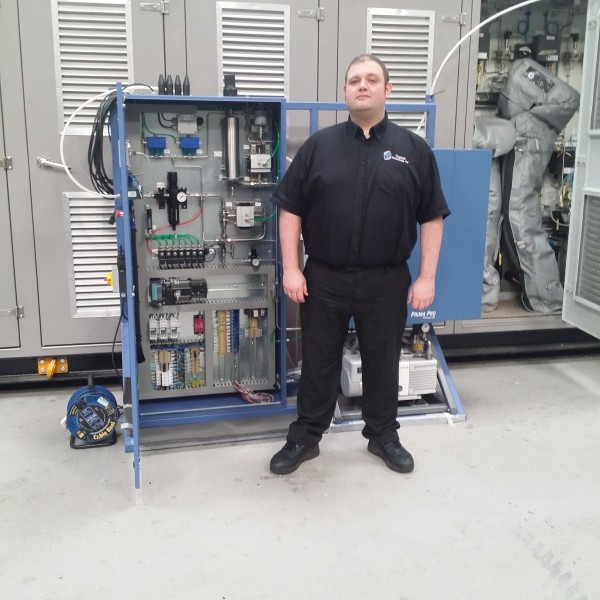A day in the life of…an analytical engineer
November 3, 2014

Name:
Greg BurnellRole:
Project ManagerDivision:
Analytical EngineeringHow long have you been with Thyson Technology?
12 monthsTell us a little bit about what you do at Thyson?
I work across lots of different disciplines, but I do have a passion for engineering calculations. I’m currently project-managing and design-engineering a nuclear-industry project for a national laboratory.
Give us an idea of what a typical day for you as an analytical engineer would be like?
One of my favourite things about working at Thyson is that no day is ‘typical’. Every project is different and requires lots of engineering skills.
As a rule of thumb, I tend to check my emails first thing as I may have to answer technical queries from our international customers that have been sent over night. I then review my tasks for the day. These could include anything from matching equipment to specification requirements to performing frequency calculations on sample probes. I also spend a lot of time producing and reviewing drawings with our CAD department.
What’s the most challenging project you’ve work on and why?
The classified national nuclear project I’m currently working on, which has a steep but fulfilling learning curve. We wanted to deliver the 3D modelling needed for this project in-house, so we invested in the software and training which has helped us to keep full control over the design aspects.
Can you tell us about an interesting piece of equipment you’ve developed or used?
I was recently part of the team designing a gamma spectrometer shield with incorporated gas analysis chamber. This is used in nuclear projects to prevent background radiation from being detected when sampling gases, which can lead to an incorrect reading being taken.
We used parametric analysis to determine the optimum thickness of the chamber end-cap. This meant that the cap was thick enough to withstand the positive and negative pressures it was subjected to but not any thicker than it needed to be so that the gamma spectrometer gave the truest possible results.
What’s your proudest moment working at Thyson?
My first project for Emerson Process Management. I designed and project-managed the production of an instrument training rig for Eastman Chemicals. My proudest moment was on the day of the factory acceptance test (FAT) when the engineer form Emerson told me that he knew the project was a success when he saw the look on the customer’s face as he entered the building that housed the rig.
I owe a lot to the skill of our workshop staff and our lead mechanical fitter who made the tube work and instrument positioning look like a piece of art!
What’s your advice to somebody looking into a career in engineering?
Whether you get into engineering through university or a vocational route, nail the fundamental maths. If you can use applied maths, you can solve engineering problems in most disciplines.
Have you done much travelling in your career, if so where have you been?
I haven’t done any travelling with Thyson yet, but have got my eye on some offshore oil rig visits!
As an engineer, however, I’ve travelled to the USA, all over Europe and the Middle East. I’ve even found myself in some famous places like Abbey Road Studios in London!
How would you say engineering has changed since you started out? Is it more technical or more IT focused, for example?
There’s certainly a lot more focus on safety, traceability and documentation. This has had the practical implication of having to back-up more and prove every engineering decision. When you’ve got it right and can show it, there’s nothing more rewarding.
How do you relax in your spare time?
I like to spend time with my family, we like to take our son on days out to experience new things.
What’s your favourite television programme?
Top Gear
Describe yourself in 3 words.
Bold, patient, driven
